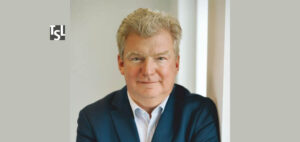In public administration, innovation and efficiency are pivotal in addressing the needs of communities and enhancing overall quality of life. The focus has shifted towards integrating advanced technologies and strategic approaches to improve public services and ensure that community initiatives are both impactful and sustainable. As public sector entities grapple with these challenges, they seek leaders who can blend vision with practical solutions to drive meaningful change.
Dr. Anniina Autero embodies a unique leadership style that fosters success through positivity, empathy, and personalized support. Her belief in the power of a positive and engaging environment for innovation reflects her ability to motivate and inspire high-performing individuals. Dr. Anniina’s leadership style, characterized by authenticity and a deep commitment to supporting her team, enables her to guide them effectively through complex and ambiguous situations. Her emphasis on understanding each person’s perspective and maintaining high morale, even amidst challenges, showcases her dedication to building resilient and collaborative teams.
The City of Tampere is at the forefront of innovation, creating an environment that benefits residents and businesses. Through people-centered strategies, the city significantly enhances public services and cultivates a thriving community. The City of Tampere is committed to collaboration between the public and private sectors, driving innovations that fuel economic vitality and elevate the quality of life for all. With bold, pioneering efforts and a forward-looking vision, especially in the context of the metaverse, Tampere is positioning itself as a leader in digital transformation. The city’s balanced approach to embracing cutting-edge technologies while maintaining stability demonstrates its commitment to progressive yet practical solutions. By cultivating cross-sector partnerships and utilizing new technologies, Tampere revolutionizes its services, ensuring core functions remain reliable and effective. This careful balance allows the City of Tampere to tackle contemporary challenges, stimulate growth, and confidently serve its residents and the business community.
Let’s discover how Dr. Anniina’s empathetic leadership is shaping the future of public service:
Comprehensive Leadership Approach
Dr. Anniina believes that positivity, optimism and empathy are the cornerstones of success, particularly when working with smart, high-performing individuals. These qualities create an environment where innovation and insights can thrive.
She experienced, “Innovative solutions often arise when a group of talented individuals feels relaxed and engaged.” A light-hearted, even humorous, approach to ambiguous problems can lead to breakthroughs that might not emerge in a more stressful environment.
With a background as a university instructor, Dr. Anniina has instilled in her a pedagogical approach to leadership. She believes that just as students require individualized support, professionals also need personalized encouragement to thrive. Dr. Anniina feels, “A leader must understand each person’s unique perspective and find the best ways to bolster their self-esteem.”
In innovative work, where failure is a natural part of the process, it is the leader’s role to keep the team’s spirits high. Positivity is essential for overcoming the fear of failure, ensuring that the team remains resilient and continues to push for success. “After all, every failure is just a stepping stone toward eventual success,” she quoted.
The Power of Authenticity in Leadership
Dr. Anniina believes, “Authenticity in leadership is about being genuine and transparent in all interactions.” It involves bringing her true self into every situation and ensuring that her actions align with her values. She believes, “When people see the real me—my strengths, vulnerabilities and passions—they are more likely to trust me and my leadership.” This trust empowers people to give their best, collaborate more openly, and stay committed to shared goals.
Authentic leadership begins with getting to know the people being led. Dr. Anniina makes it a priority to spend time with her team apart from work discussions to listen to and understand them. Dr. Anniina observed by being authentic, people feel more comfortable coming to her with their ideas, concerns, and feedback, which creates a more open and collaborative environment. It helped her to create a more engaged, motivated, and high-performing team.
Authenticity has also reinforced her belief that leadership is fundamentally about human connection. When people feel seen and valued for who they are, they’re more likely to engage fully and bring their best selves to their work.
“Authenticity is not just a leadership style—it is a powerful force for building trust, fostering collaboration and driving organizational success,” Dr. Anniina quoted.
Building Trust and Alignment
Dr. Anniina shares, “Balancing the strategic vision with the immediate demands of day-to-day operations is indeed a challenge, but it is also a critical aspect of effective leadership.”
It involves spending time with the team to ensure they understand and are aligned with the strategic vision. Dr. Anniina actively engages with them, listening to their thoughts and ideas, helps in making informed decisions and reinforces the collective commitment to long-term goals.
By being genuine and transparent, she builds the trust that is necessary to sail across challenges of both strategic and operational demands. “When people trust their leader, they are more likely to follow and contribute to the strategic vision, even as daily challenges are tackled,” Dr. Anniina stated.
Dr. Anniina ensures that the most critical tasks align with strategic objectives and empowers the team to take ownership of specific areas. This approach allows for addressing daily challenges without compromising the long-term vision.
Balancing Innovation with Stability
In Tampere, the goal is to harness the power of innovation to deliver better services and improve the well-being of residents. By carefully balancing this with the need for stability and continuity, the community can confidently embrace new ways of doing things, knowing that their best interests are always at the heart of the efforts.
Dr. Anniina shares, “Innovation is crucial in public service, as it drives progress and enhances the quality of life for citizens.” However, it is equally important to ensure stability and continuity so that the people of Tampere can trust that their needs will always be met, even as new ways of doing things are explored. This trust is built through transparency, clear communication and involving the community in the process of change.
Time is taken to clearly demonstrate how new approaches and technologies will bring tangible improvements. Whether it’s through pilot programs, community consultations or showcasing successful examples, efforts are made to ensure that citizens see the direct benefits of innovation, which helps to alleviate concerns and build support.
While pursuing innovation, there is always a mindful approach to maintaining stability in core services. New initiatives are carefully piloted and phased in, ensuring that essential services continue to operate smoothly. This phased approach allows for addressing any challenges before fully implementing new solutions, thus maintaining continuity for citizens.
Building and Maintaining Trust with the Public
Trust is fundamental to the success of any public service. It is built through a combination of transparency, active public participation and the use of innovative tools to engage the community. All decisions are made openly, with clear communication to the public regarding the reasons and processes behind those decisions. This openness allows citizens to see that their best interests are being served.
Dr. Anniina asserts, “It is equally important to provide citizens with the opportunity to participate in the work.” By involving them in the planning and implementation phases, citizens feel confident and supported in the decisions and actions of the department. This participation not only builds trust but also leads to better outcomes, as the public’s insights and needs are directly incorporated into the plans.
A notable example of this approach is the ongoing EU Horizon project WeGenerate, which is being used to engage residents in the planning and utilization of a new public green space. Digital Twins creates virtual models of the space, enabling citizens to visualize, interact with and provide input on the project before its physical implementation. This innovative tool not only makes the planning process more accessible but also ensures that the outcome reflects the community’s needs and desires.
Cultivating Adaptability and Confidence
Resilience is about being both strong and flexible, particularly in the face of uncertainty and change. It represents the ability to adapt and thrive even when circumstances are challenging. To cultivate resilience, Dr. Anniina ensures that the team has access to necessary resources—whether it’s training, mental health support, or simply the reassurance of leadership backing. By equipping the team with tools to handle change, individual and collective resilience is reinforced.
At the same time, adaptability is important. It fosters a culture where change is seen as an opportunity rather than a threat. This involves being open to new ideas, quickly adjusting strategies when necessary, and supporting each other as they navigate through change together.
Dr. Anniina also believes in leading by example. She aims to set a tone of resilience—by remaining calm, focused and adaptable—from which the team can draw strength. It is important for them to see that even in challenging times, difficulties can be faced with both strength and flexibility.
Resilience is about collective strength and flexibility. By ensuring that the team feels safe, informed, and supported, Dr. Anniina believes they can face uncertainty with confidence. This resilience not only aids in managing change but also empowers the team to turn challenges into opportunities for growth.
Fostering Unity Through Empathy
As a leader, Dr. Anniina has always emphasized the importance of collaboration—whether within her team, across the community, or in broader societal contexts. Her leadership has always been guided by the principle of humanity, which means leading with empathy, understanding and a commitment to the well-being of others.
Dr. Anniina sees a future where people come together to pursue common goals and shared values. As a leader, she has strived to create a sense of unity and purpose, encouraging everyone to see the potential of a future where working hand in hand builds something greater than individual efforts. It is this vision of a shared future that she hopes will endure long after her time as a leader.
Dr. Autero hopes her leadership will be remembered as one that inspired unity, upheld humanity and looked toward a future where people work together for the common good. This is the legacy she wishes to leave for her team, the community, and the generations that follow—a legacy of collaboration, shared values, and a deep commitment to building a better world together.
Empowering Future Leaders
Dr. Anniina feels, “Mentoring the next generation of leaders in public administration is not just a responsibility; it is an investment in the future of society.” By guiding the next generation and providing them with the necessary support, Dr. Anniina ensures that they are well-equipped to sail across the challenges of public service.
Aspiring leaders in public administration must be continuously provided with an environment where they feel comfortable seeking advice, asking questions and learning from the experiences of those who have previously walked the path. This approach not only facilitates their growth but also fosters a culture of openness and learning within the organization.
Dr. Anniina believes, “Sharing experiences—both successes and failures—helps them avoid the pitfalls that have historically plagued public administration.” This knowledge transfer is key to breaking the cycle of intergenerational problems that societies often repeat.
The challenges faced by the next generation of leaders are often the result of issues passed down from previous generations, but they also come with new problems and environments. It is crucial to mentor new leaders in a way that encourages them to think critically and adapt to these evolving challenges. This forward-thinking approach enables them to address current issues effectively while also preparing for future uncertainties.
Dr. Autero believes the most critical values to impart are adaptability, empathy and a commitment to continuous learning. Future leaders must be adaptable to change, empathetic in their decision-making, and always willing to learn and grow. These values not only help them lead effectively but also ensure that they can inspire and guide others within their teams.
“Mentoring the next generation is about passing on more than just knowledge—it is about instilling the values and lessons that will empower them to lead with confidence, compassion and vision,” Dr. Anniina quoted.


